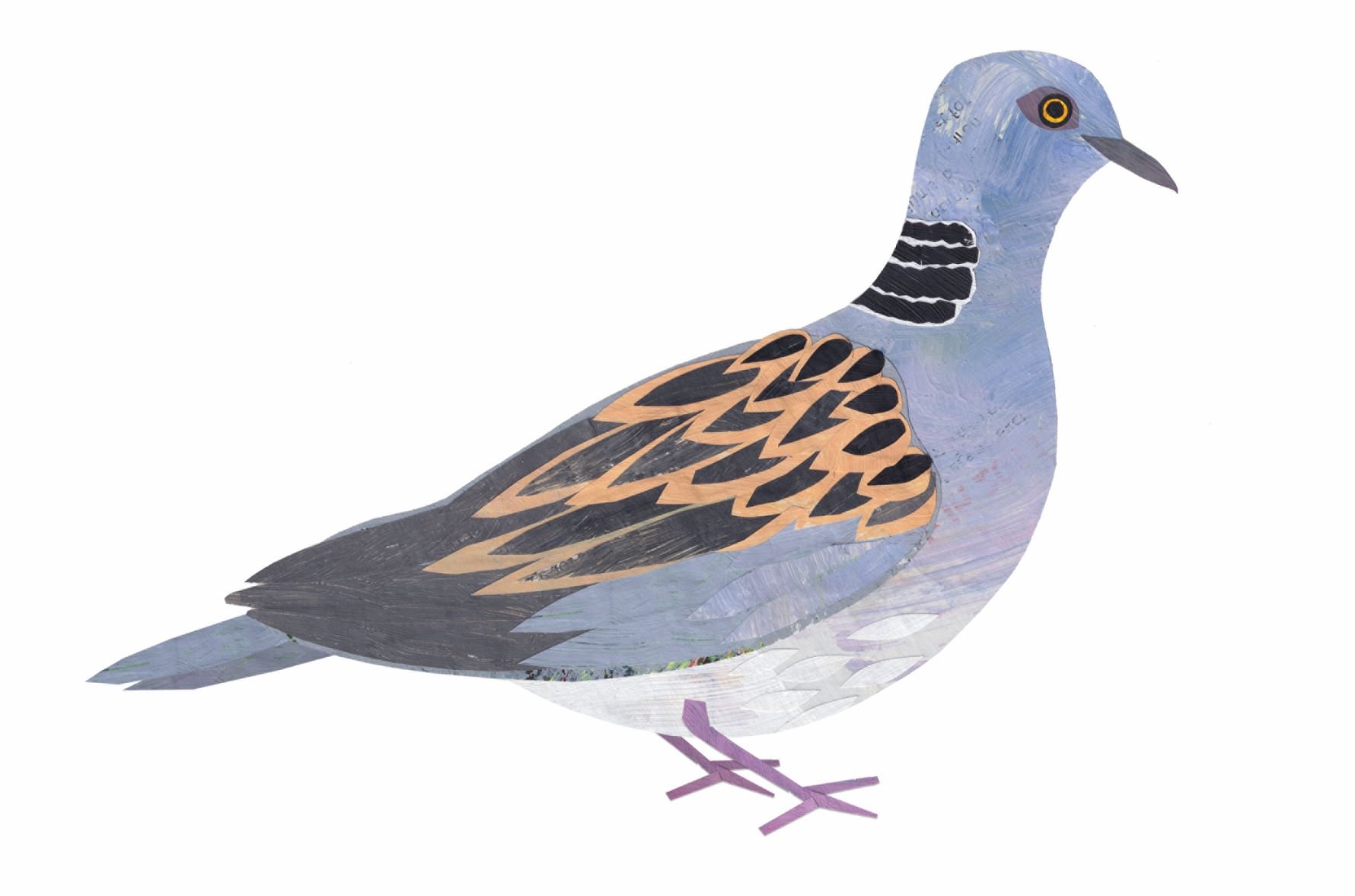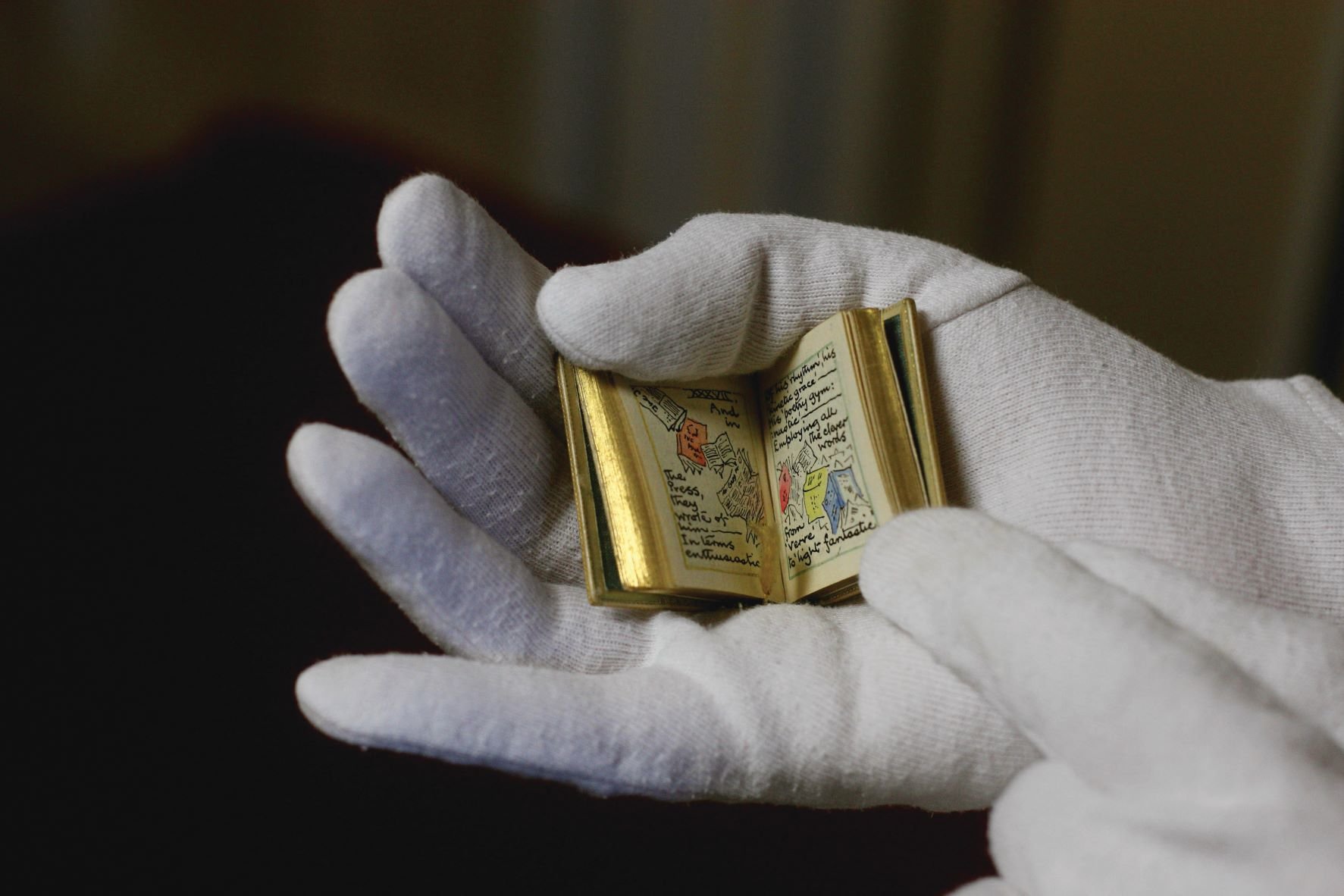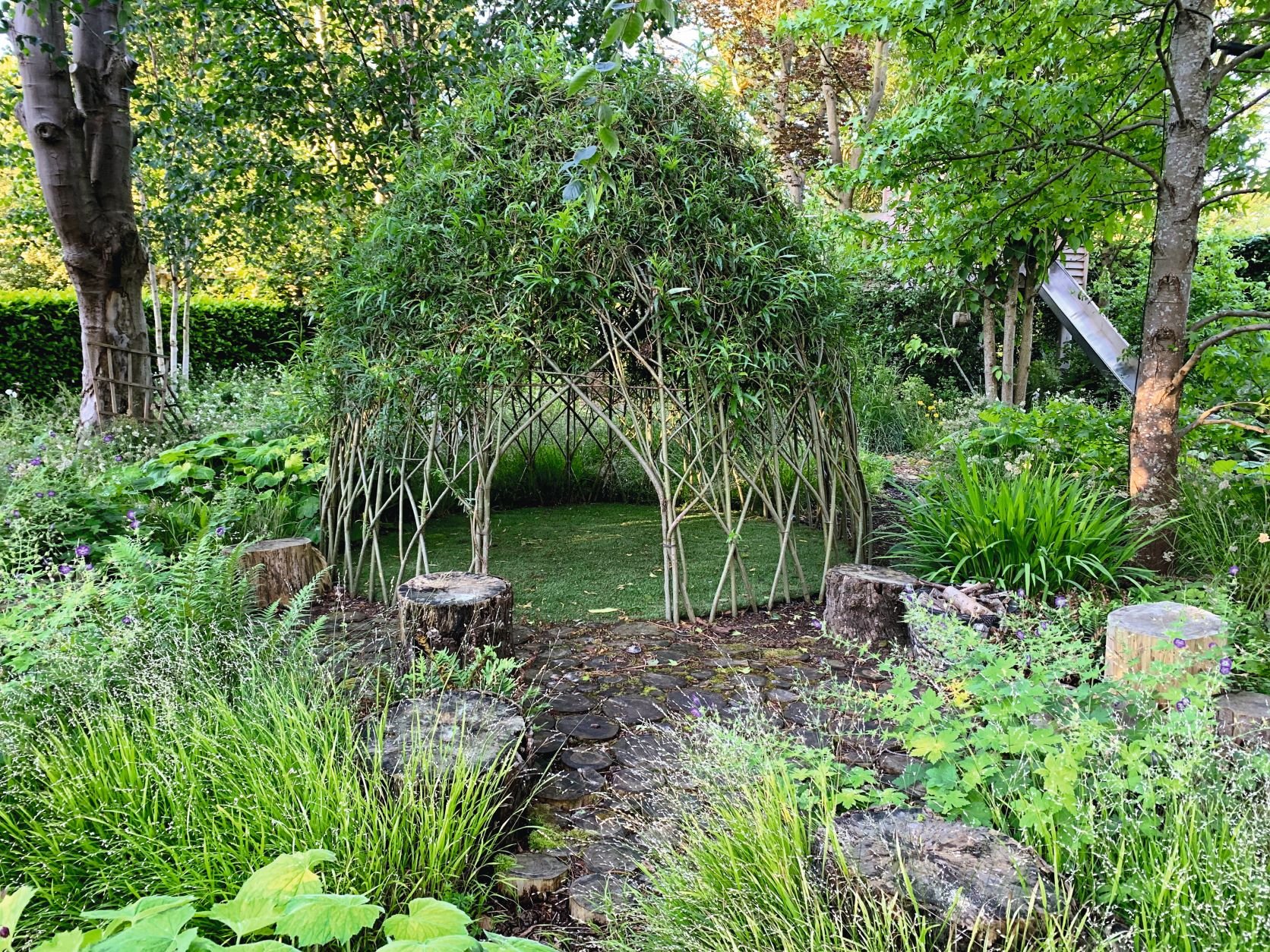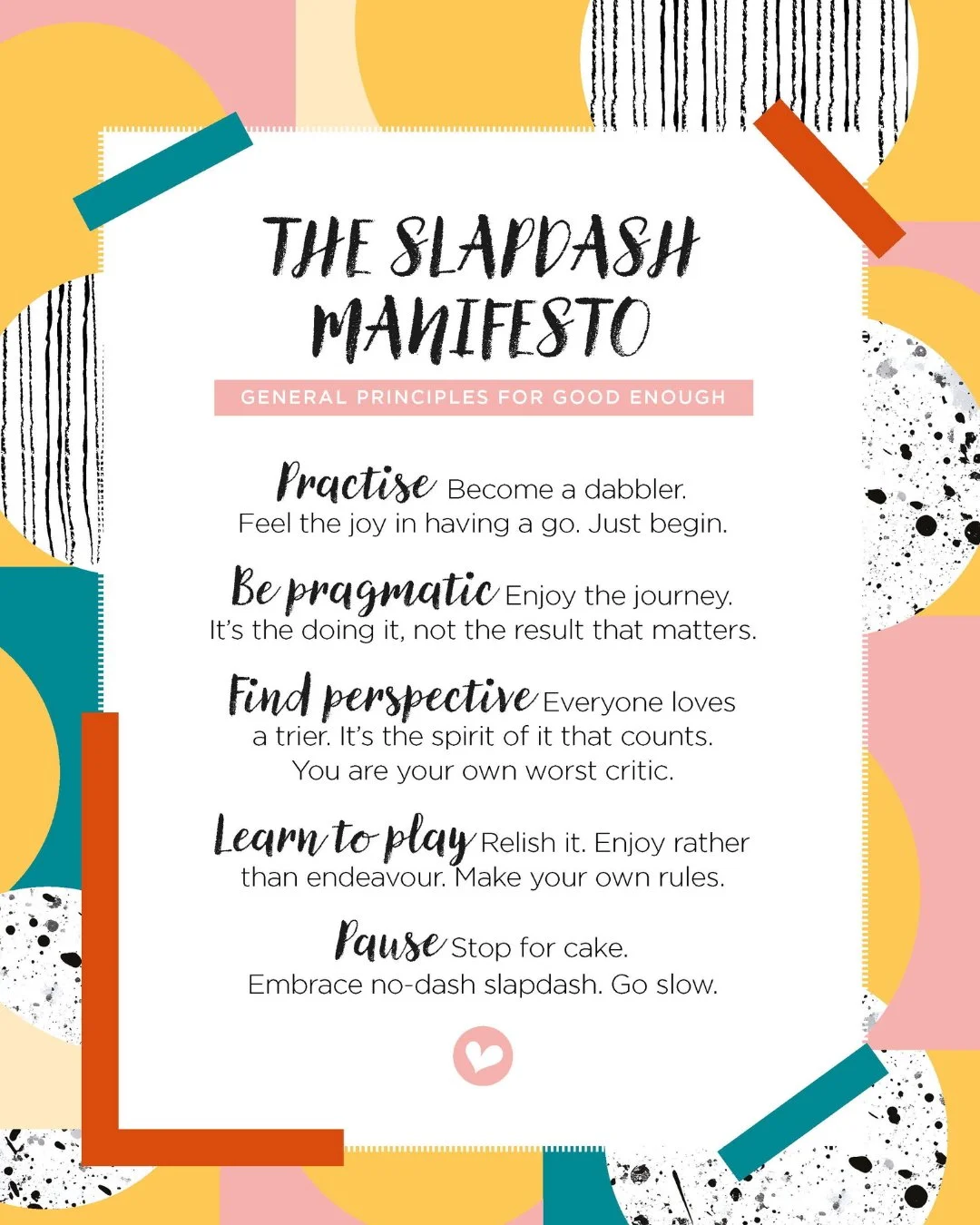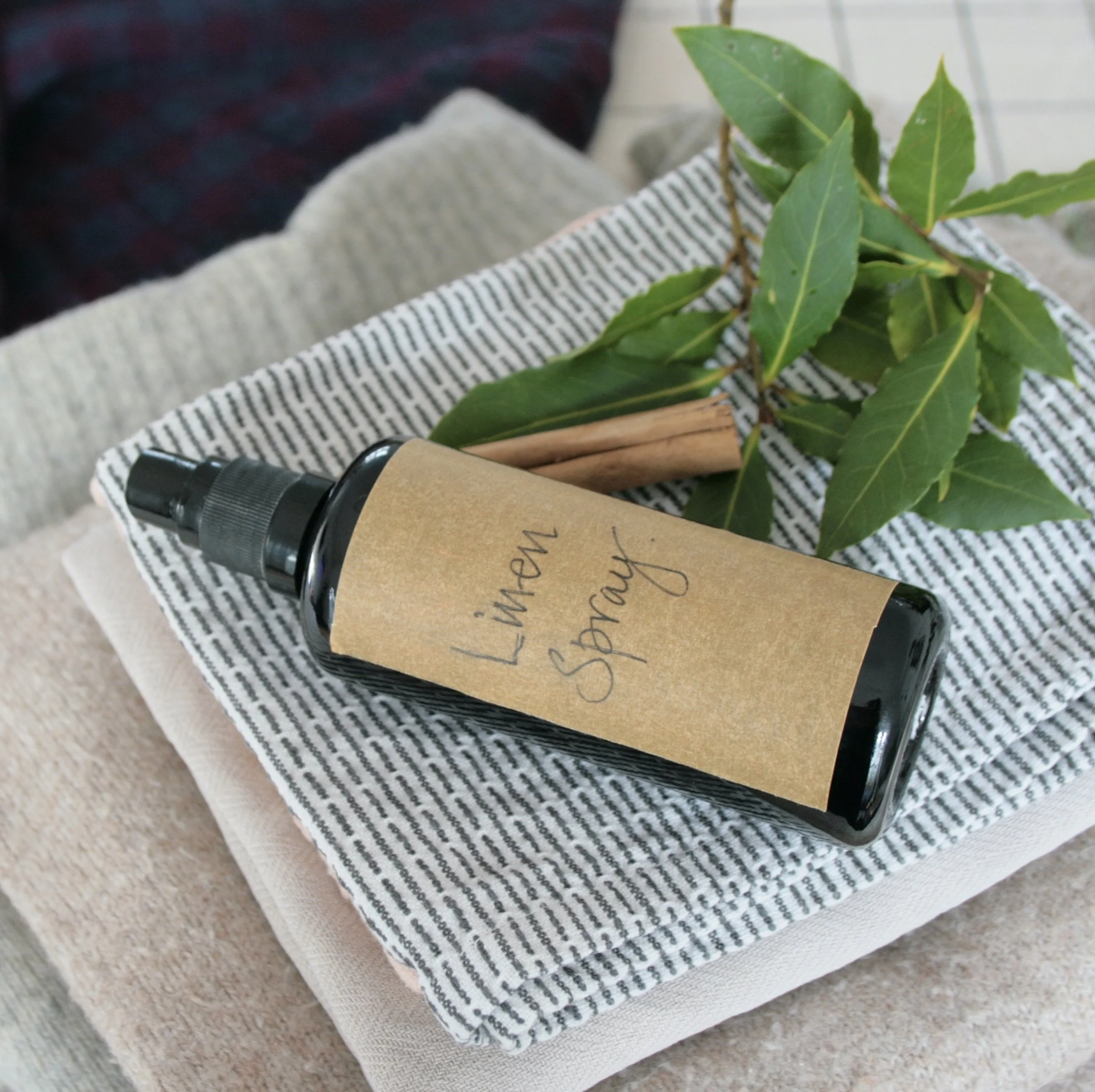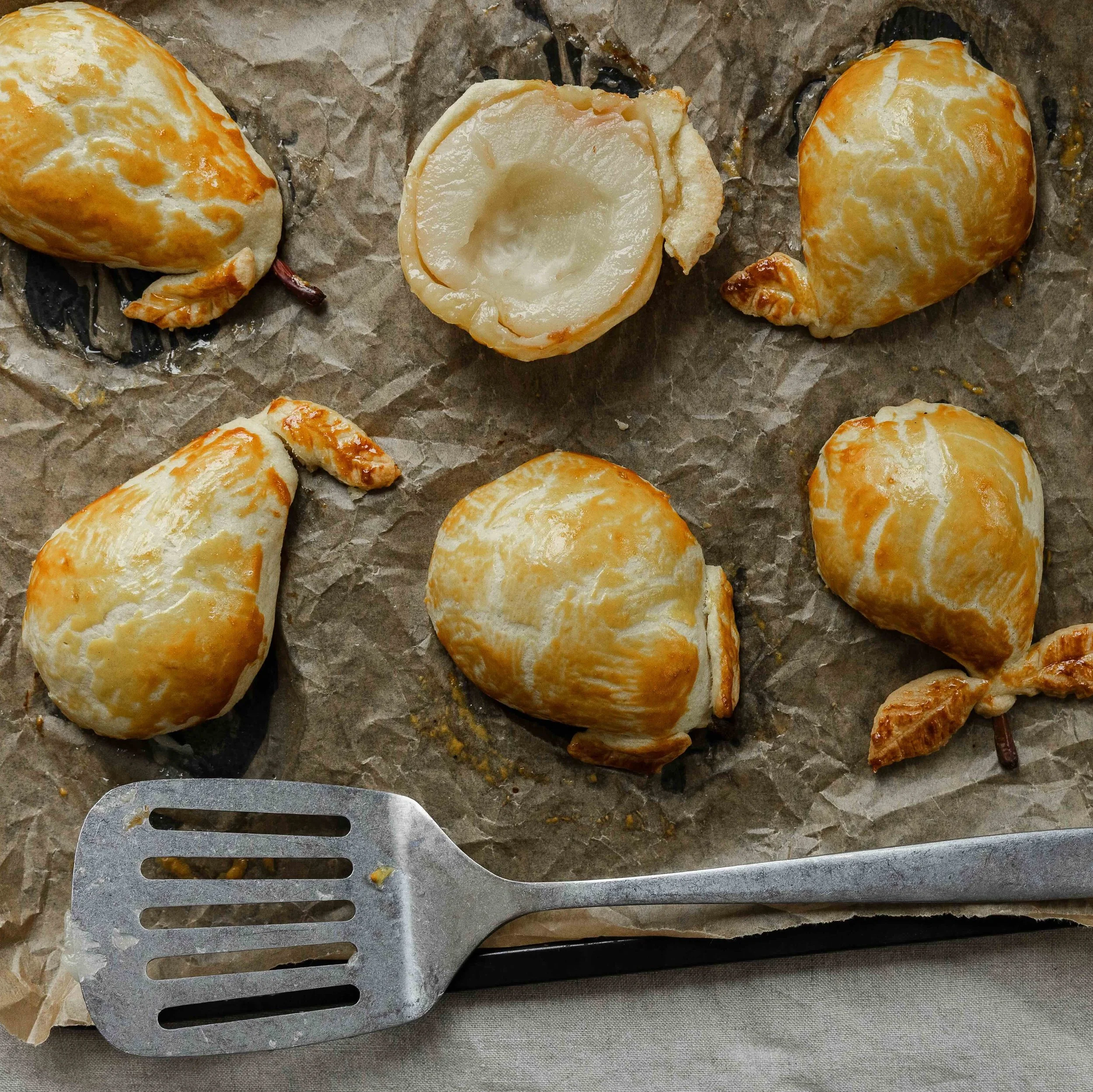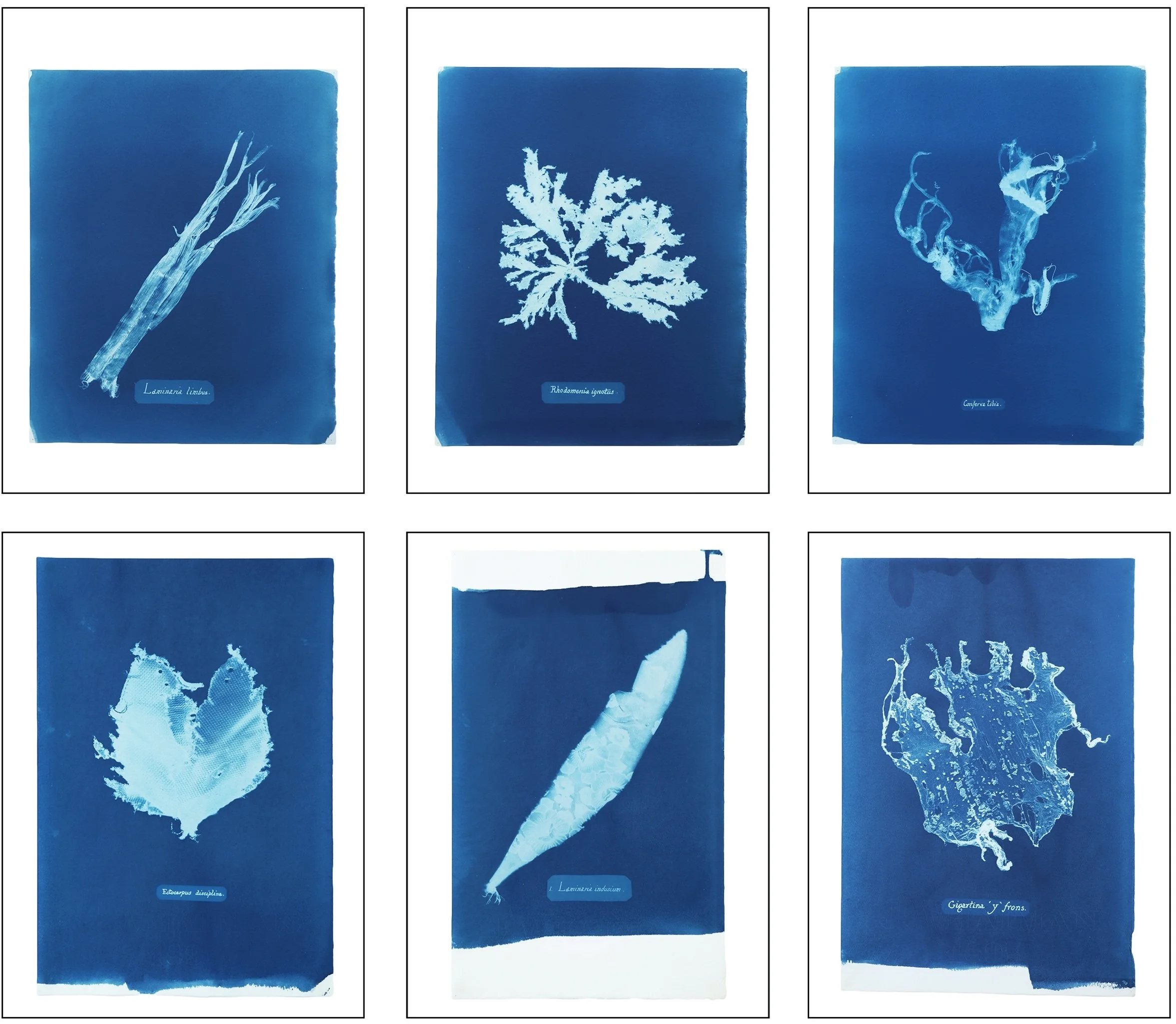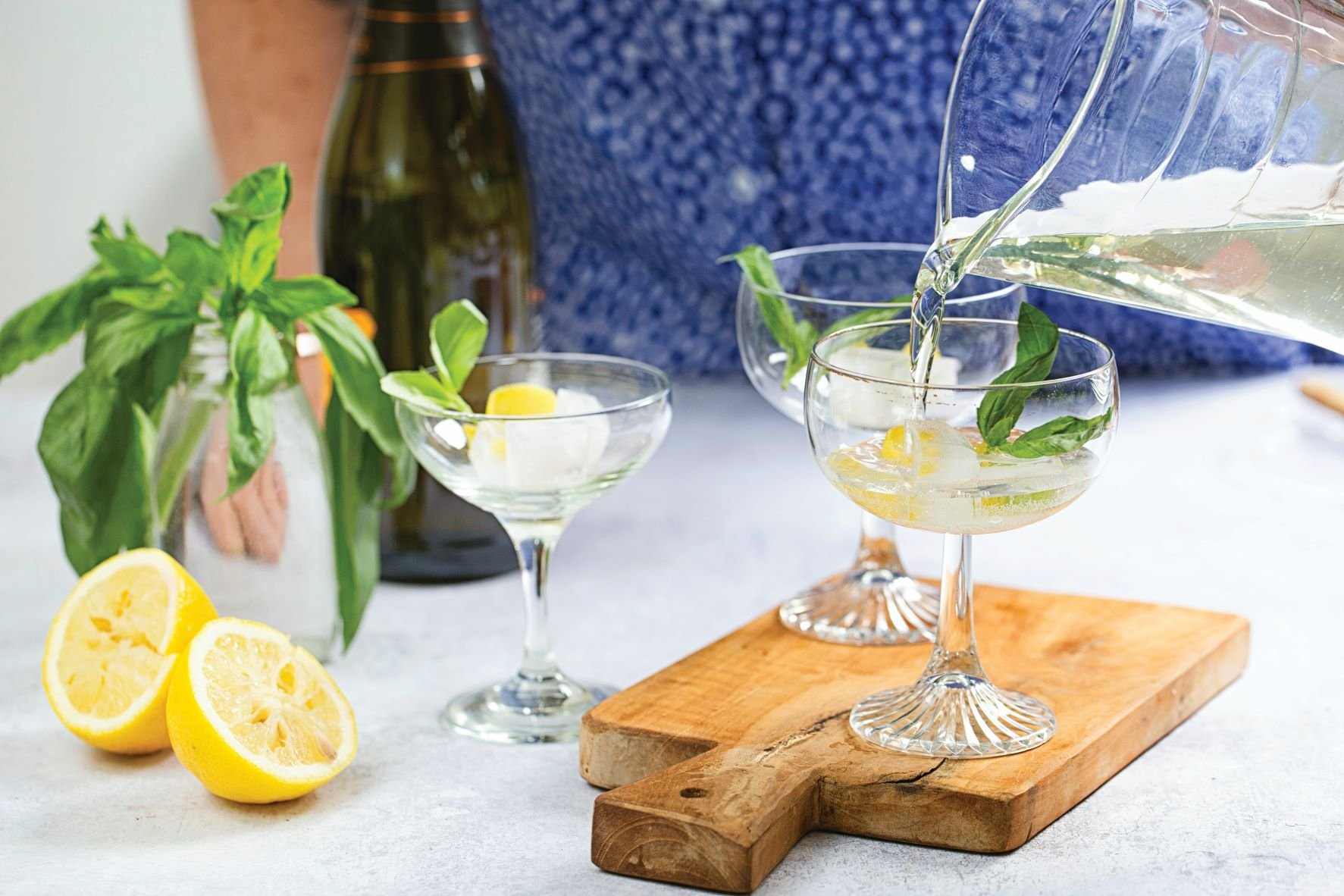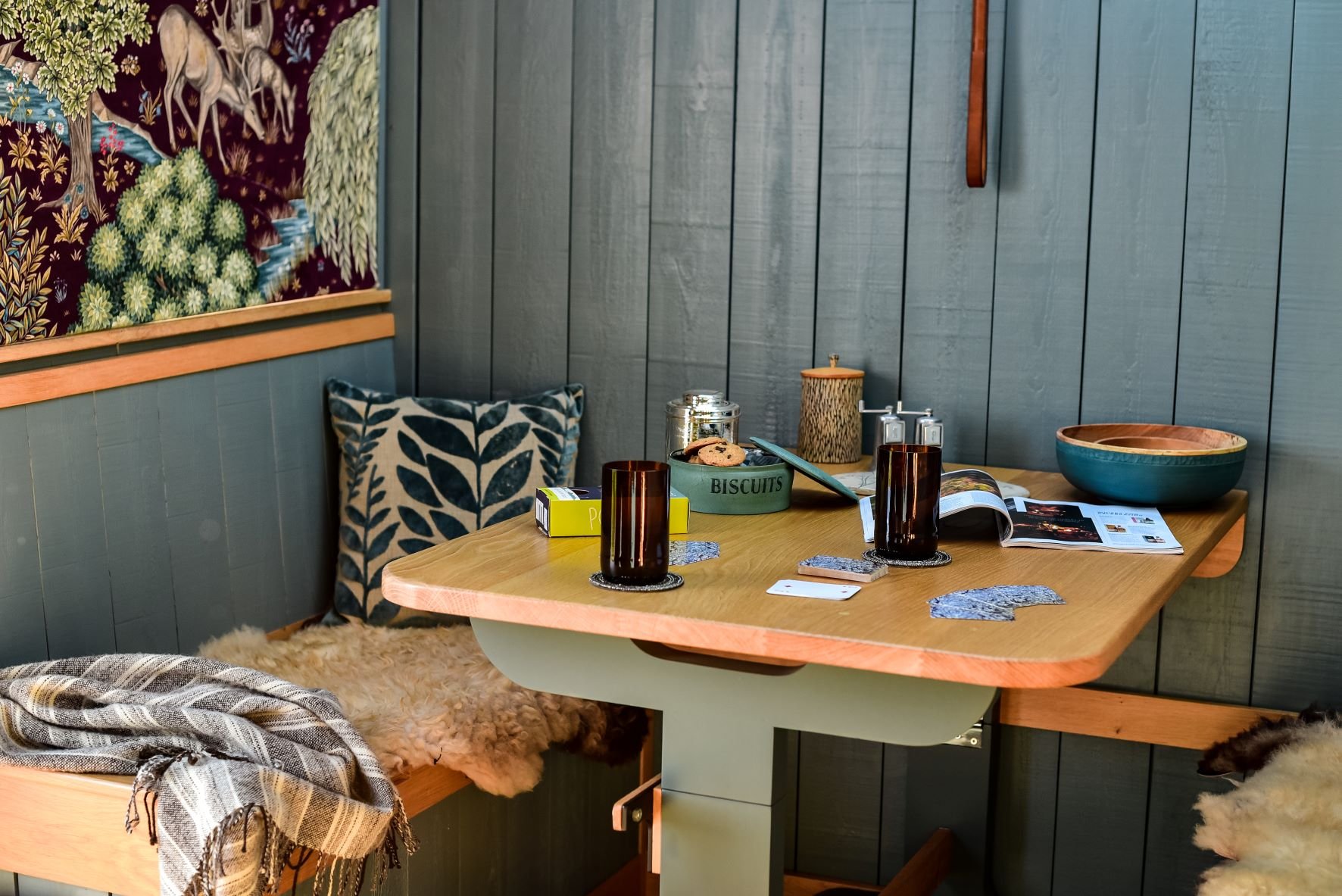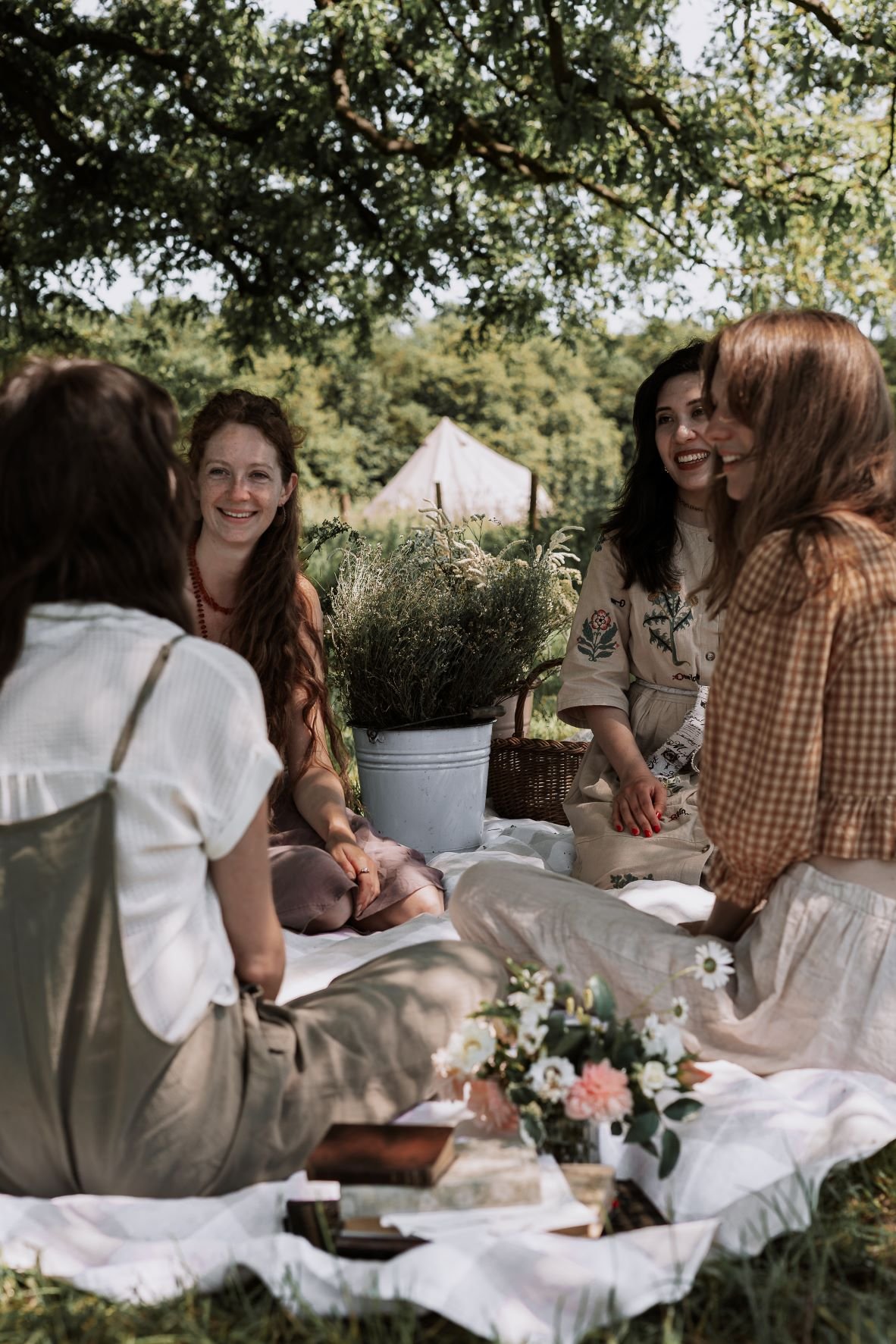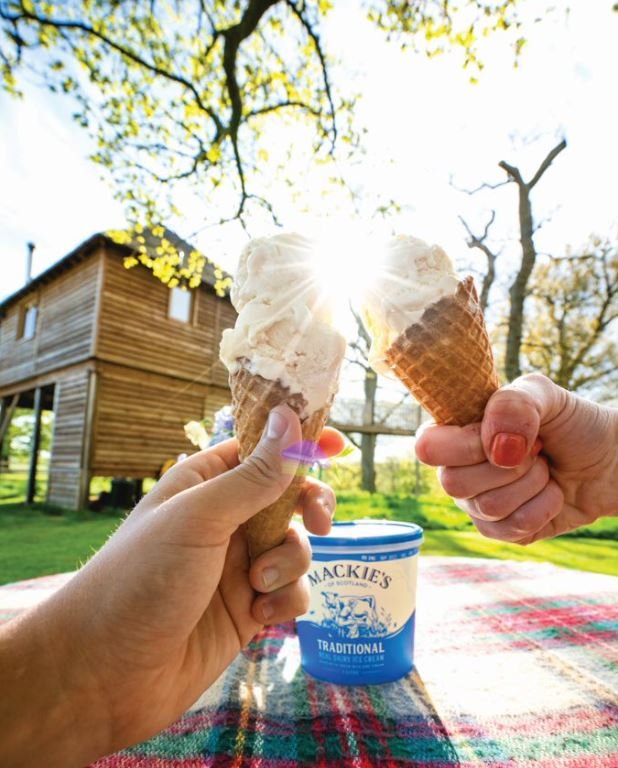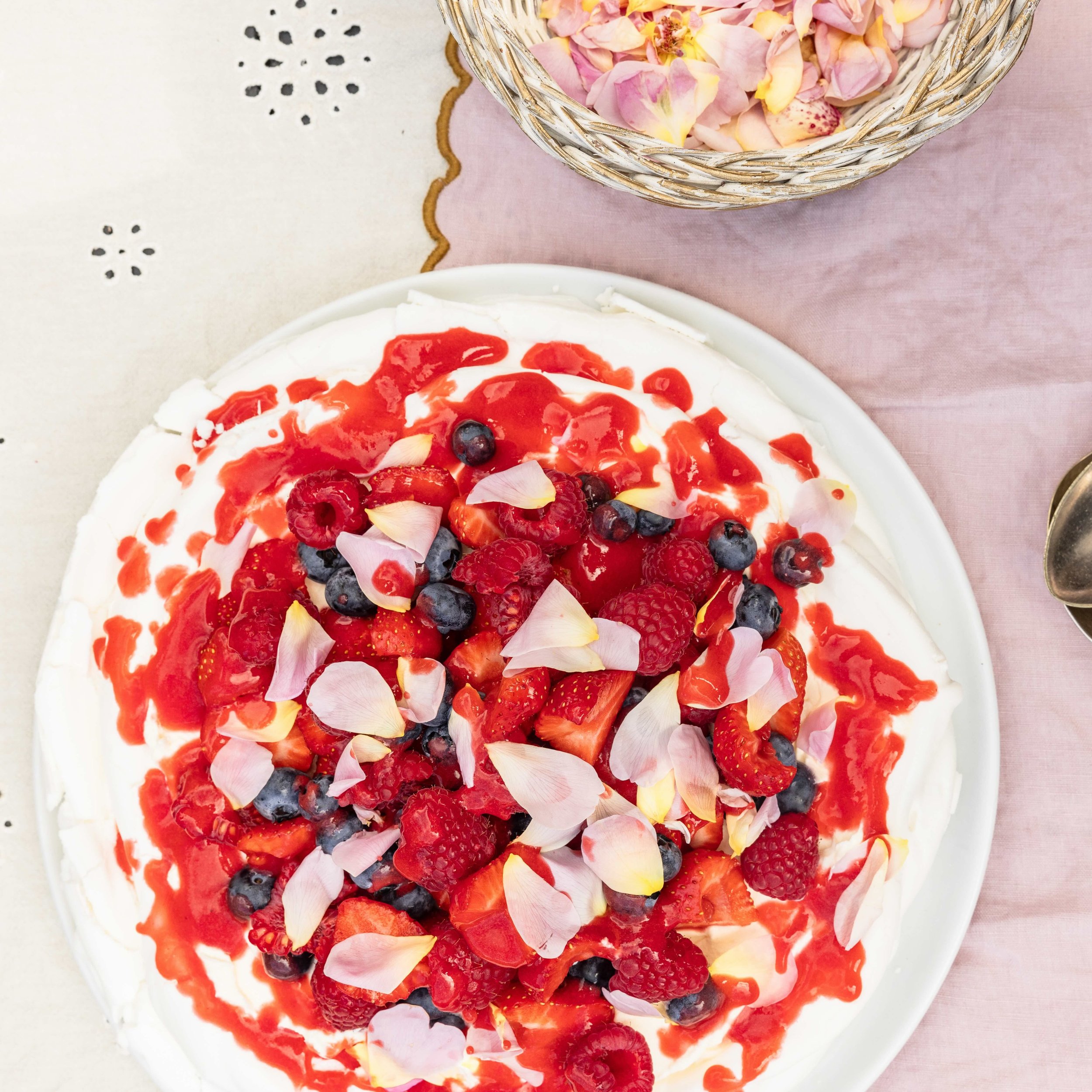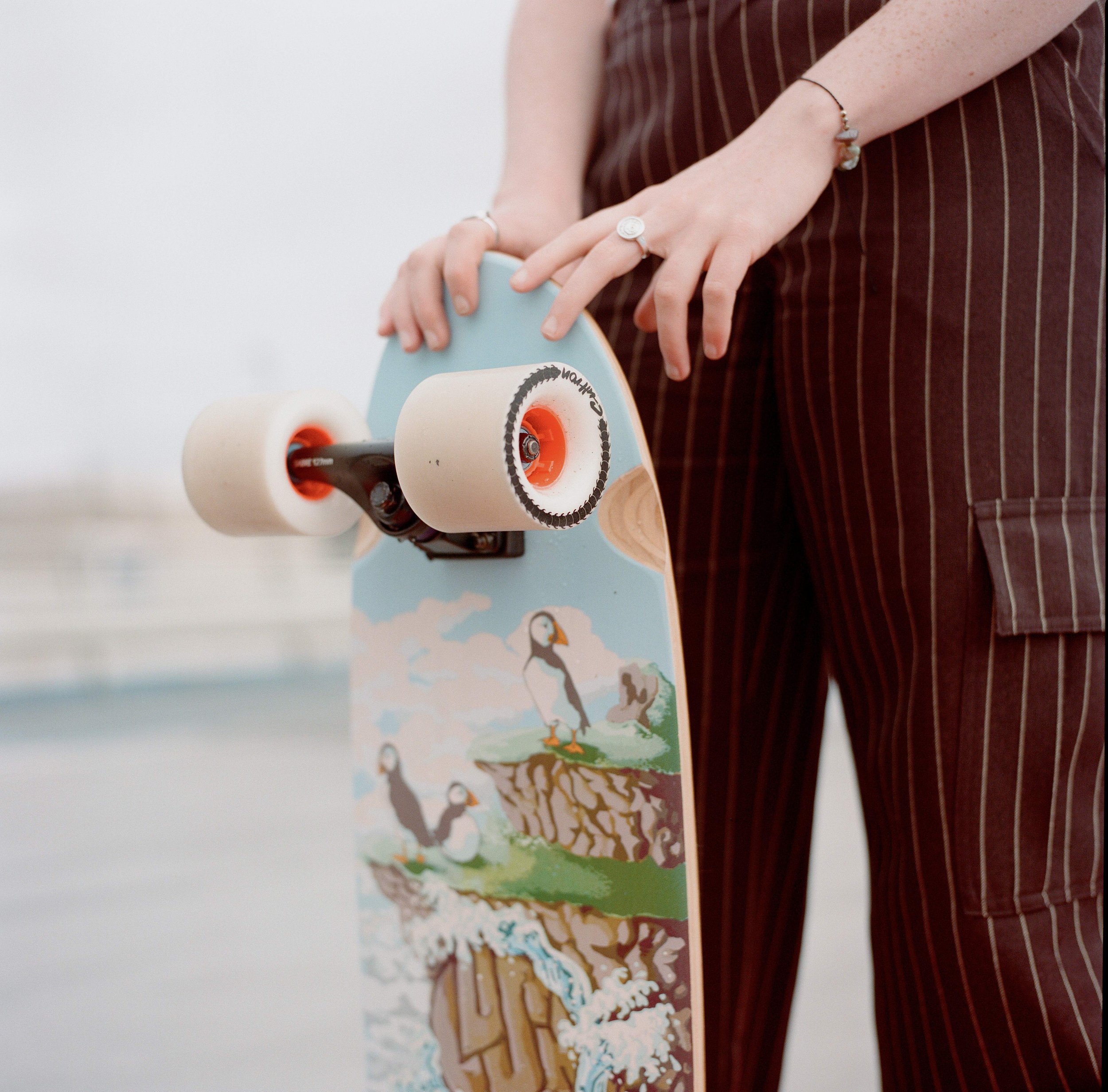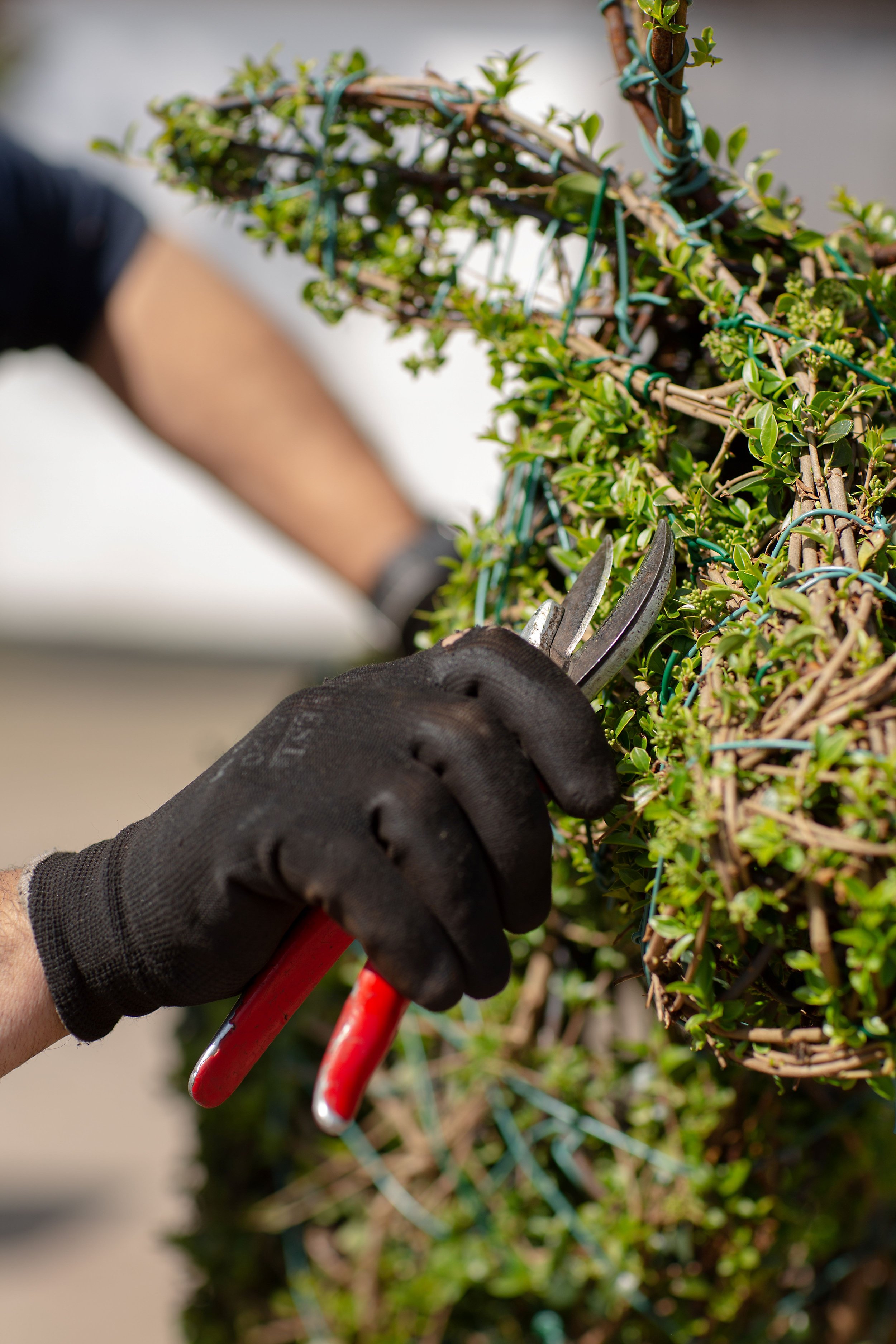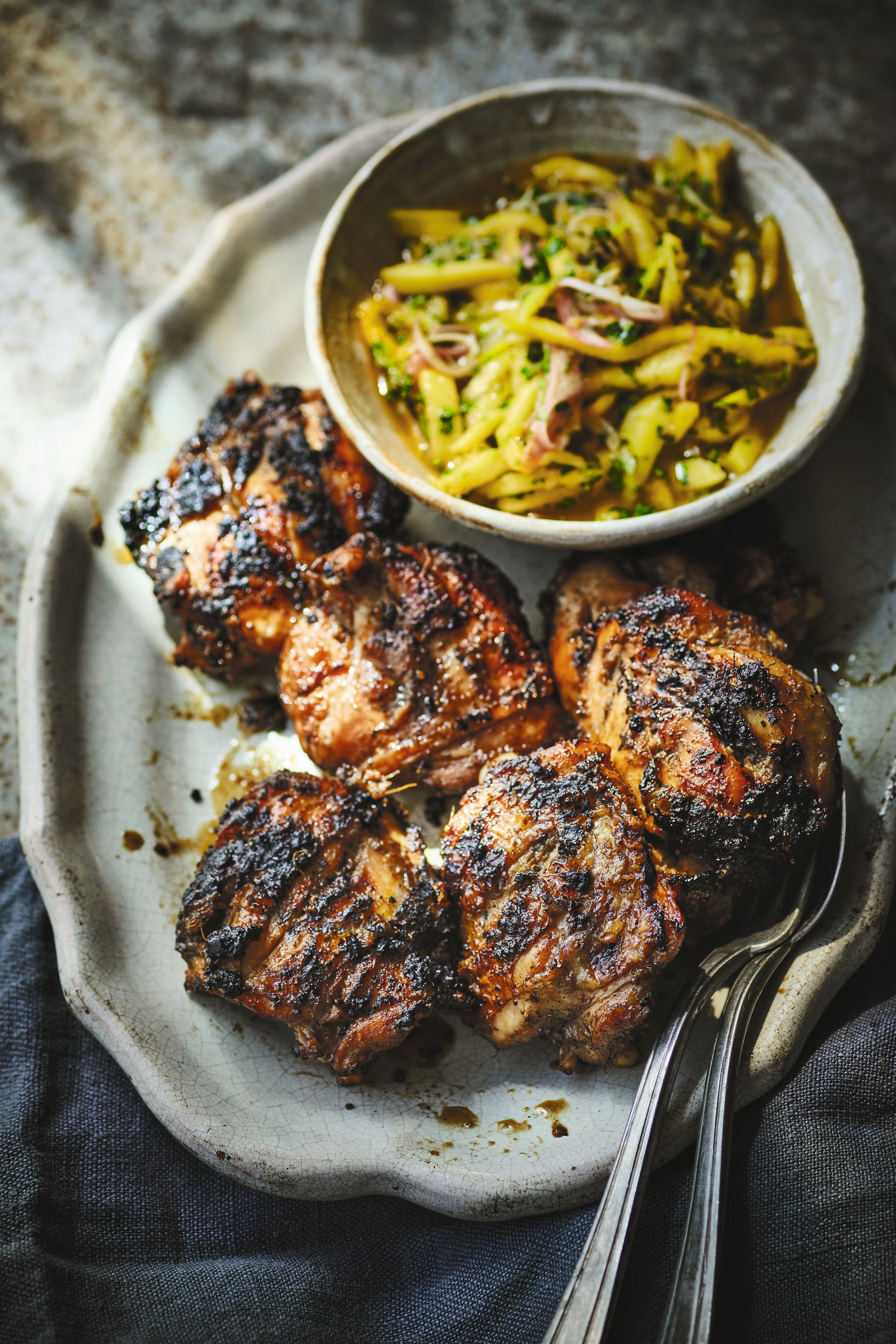DJ: Frances Ambler | Image: Shutterstock
Illustration by Christina Carpenter
Birdwatch | The Swift
The fastest bird in flight in the UK, you’ll need to look up to spot swifts as they live life on the wing, even sleeping in flight, and only coming to rest during nesting.
Look for: Black silhouettes (but actually dark brown feathers), with a forked tail and long wings coming to a point. If you can get close enough you might make out a pale patch at the throat.
Spot them: In towns and villages, as they nest in the eaves of buildings. Dusk is a good time as they flit about, chasing insects.
Listen for: Something described as a ‘scream’ but really a high, one-note whistle, and ‘screaming parties’ in the evening when they get together for a big shout out.
Join us in The Simple Things bird hide every month on our Almanac pages, where we have lots more seasonal things to note and notice, plan and do. Buy this month's The Simple Things - buy, download or subscribe
More from the July issue…
More from The Simple Things’ Bird Hide…
Photography by Catherine Frawley
Go gökotta | (wake up with the birds)
Summer means long evenings spent outdoors but don’t go to bed so late you miss out on the joy of an early summer’s morning. Make like the Swedes and go gökotta…
The Scandinavians seem to have single-handedly cornered the wellbeing market in recent years, thanks in part to their knack for coining words for some fairly random activities. First there was hygge, then there was lykke and lagom and now there’s gökotta, a Swedish word that literally translates to “rising at dawn to listen to bird song.”
But getting up early doesn’t have to <just> be about the dawn chorus. Here are a few more ways to go gökotta and make the most of early rising this summer.
Have a breakfast picnic somewhere beautiful. The beach, a nearby hill, someone’s garden… If you need any more inspiration, read our feature Morning Has Broken in the July issue of The Simple Things.
Have a quiet chat with your garden. While there’s still dew on the grass, get out and enjoy your garden in a different light. It will thank you for watering it nice and early too, before the sun can scorch the leaves.
Write morning pages. If you’ve not heard of this, it’s the practice of writing three sides of A4 (long hand not typed) each morning before you do anything else. The idea is that you catch yourself before you are fully conscious so you write without any filter, about what really matters to you. Give it a go - you could have a novel by next year!
Make overnight oats. A hearty and wholesome breakfast that is all ready for you in the fridge always makes us smile. Prepare the night before (the internet is full of recipe ideas or turn to page 9 of our July issue for our recipe for banoffee overnight oats) and then grab them from the fridge at 6am and eat them in your pyjamas in the garden.
Read. With more of us working from home these days, many of us have lost the time we spent reading on a commute. And finding time in a busy day to sit down with a book is always hard. Set your alarm just half an hour earlier than you usually would and ringfence that time for reading.
Exercise like nobody’s watching (because they’re all still in bed). If you’re just starting out as a runner or cyclist and feel a little self conscious, try going at 6am when the streets are quiet. Heck, why not go the whole hog and go rollerskating or Nordic walking? In the early morning, you have no one to answer to (and no one to laugh if you fall over).
Be the first in the bakery queue. There’s nothing like the pleasure of a loaf, warm out of the oven. And is that an almond croissant you’re just getting out too? Yes, two of those please!
Start a secret hobby. When you’re up before everyone else, you can do all sorts of things no one knows about… spend an hour in the early hours learning a new language, taking an online art class or getting really good at yoga. In a few months you’ll have the pleasure of leaving friends and family open-mouthed as you order your dinner in Catalan/hang a painting on the wall you created/do an impressive headstand.
Get serious about coffee. We never said early rising was easy, but caffeine always makes it a bit less of a wrench, and a fancy aeropress or cafetiere and a bag of really good coffee will make hearing your alarm go off a joy. Or you could try making your own tea blends with dried herbs and flowers from your garden. Whatever your morning tipple, you can make it a bit of a special event, and spend a while savouring it alone.
Indulge in a bit of water therapy. Go for a swim as soon as the pool opens, have a long soak in the bath or take a cold shower and feel your skin zing. Immersing yourself in water is a wonderful ritual that benefits both body in mind as you wash away the day and the night before and begin the day feeling cleansed and new.
If you’re feeling inspired to make the most of your early mornings, you might like to buy a copy of our new Everyday Anthology. Featuring good food, forgotten wisdom, mindfulness and microadventures, projects and pastimes, it’s a dip-in guide to dawn, day, dusk and dark.
Buy this month's The Simple Things - buy, download or subscribe
More from our July issue…
More ways to make the most of mornings…
Photograph: Alamy
Think | Why we Love Tiny Stuff
Tiny things are cute, aren’t they? We don’t know why they make us squeal with delight, but they do.
Better yet, though, is the idea of being tiny ourselves. Which of us hasn’t, at some point, longed to eat at a table made from a cotton reel, or curl up in a matchbox bed? Our books, films and dreams are filled with characters that are either already diminutive in size or become tiny, from Alice to Tom Thumb and many more. Let’s crouch down very low, speak very quietly, and meet a few of them…
Mrs Pepperpot
Mrs Pepperpot is a charming Norwegian creation. She lives with her husband, Mr Pepperpot (obvs) in a country cottage and her dark secret is that occasionally she shrinks to the size of a Pepperpot and goes on adventures. We loved it for the gorgeous detail of the pickles Pepperpot gets into when her world suddenly becomes huge and pigeons become the size of T-Rexes. Also, if you thought ‘Pepperpot’ was hard to say, just be glad you aren’t reading it in the original Norwegian in which she is called ‘Teskjekjerringa’ (Mrs Teaspoon).
Stuart Little
Stuart Little (nominative determinism in action right there) is the main protagonist from the 1945 novel of the same name by EB White (most famous for Charlotte’s Web). Stuart is born to an ordinary couple living in New York and is completely ordinary himself… other than being 5cm tall and looking like a mouse. Round of applause for EB White for having the brass neck to style out a human couple simply giving birth to a mouse and it drawing no comment. Our favourite thing about Stuart Little though, was probably his motorised toy car that he zipped around the United States in. That’s what we’d do if we were mice.
The Kids from Honey, I Shrunk the Kids
Some siblings and their neighbours’ kids are shrunk to a quarter of an inch apiece when they accidentally set off their inventor father’s ray gun shrinking machine. Once shrunk only the dog can hear them and they battle to let their father (Rick Moranis) know what has befallen them. Includes many iconic moments - you are not a child of the 1980s if you haven’t checked your spoonful of Cheerios for tiny children before conveying it to your mouth.
The Borrowers
Perhaps the most famous of shrinkers. Which of us can honestly say they didn’t fall in love with the teeny tiny lifestyle of Homily, Pod and Arietty, under the floorboards, borrowing everyday domestic items from the ‘human beans’ to make themselves furniture, tools and more. You’ll never discard an empty matchbox thoughtlessly again.
Ant Man
Mild-mannered scientist Hank Pym develops a technology that enables him to shrink to the size of an ant. But unlike other shrinkers he can also communicate with and control the ants, using them as his private army. An excellent superpower we all wish we had come the middle of summer when no pot of jam left unattended is safe…
The Incredible Shrinking Woman
In this 1981 film parody of The Incredible Shrinking Man, suburban housewife Pat Kramer is exposed to an experimental perfume made by her husband’s company. This is why we never let our husbands choose perfume for us. She has to move into a doll’s house and is then kidnapped by a group of scientists who plan to experiment on her in order to shrink everyone in the world. We reckon Pat herself might have preferred the more peaceful shrinking life of Mrs Pepperpot, but it’s an exciting watch.
Kay Harker
The main protagonist from John Masefield’s The Box of Delights is able to ‘go swift’ and fly and ‘go small’ and shrink. Sometimes he even does both at the same time, in order to rescue the country’s clergy in time for Christmas. Best shrinking moment? Escaping down a river in a tiny model boat.
The Lilliputians
It’s during Gulliver’s first voyage that he is shipwrecked on the island of Lilliput, where the inhabitants are less than six inches tall and also rather small in mind, seeming to care about insignificant things enormously. They once had a disagreement, we learn, with the inhabitants of a neighbouring island about whether to break an egg at ‘the small end’ or ‘the big end’, which gave rise to six rebellions. Gulliver helps the Lilliputians but eventually falls from favour after urinating on a fire to put it out for them. There’s no helping some Lilliputians, is there?
The Whos
Perhaps the tiniest of the all the tiny people in our rundown, the Whos are the creation of Dr Seuss. They live in Whoville, a city which exists within a speck of dust, which is eventually placed on a clover flower by Horton the Elephant. They are warm, welcoming furry beings, with dog-shaped noses and twelve toes each. The Whos made their debut in Horton Hears A Who but are best known for their part in teaching the Grinch the true meaning of the festive season in How The Grinch Stole Christmas…
“Every Who down in Who-ville, the tall and the small,
Was singing! Without any presents at all!
He HADN'T stopped Christmas from coming!IT CAME!
Somehow or other, it came just the same!”
Terry Pratchett’s Carpet People
“In the beginning there was nothing but endless flatness,” we are told. “Then came the carpet.” The carpet is now inhabited by many different tribes and peoples and this is the story of their adventures. A wonderful, escapist read for anyone who spent hours as a child laying on the carpet contemplating the crumbs, the dust and anything else that might be inhabiting the wool pile.
If you love all things tiny, don’t miss our feature on why love miniatures. It’s called ‘Tiny Happy People’ and it starts on page 66 of our July issue, in shops now. Buy this month's The Simple Things - buy, download or subscribe
More things to make you think…
More from our July issue…
Competition | Five wellbeing hampers to be won
Jason Natural Care is offering five hampers (each worth £67) to The Simple Things readers, full of natural products, ranging across their best-selling haircare, skincare, bodycare and oralcare products.
Since 1959, wellness has been Jason’s second nature. The company takes an eco-friendly approach to body-loving products that only draw upon safe and effective ingredients that harness the true power of natural botanicals.
With every product being vegan and certified cruelty free, Jason products are also housed in packaging made from 100% post-consumer-recycled content, so you can be sure each product is formulated with both the needs of your skin and the environment in mind.
The prize features:
· Biotin & Hyaluronic Acid Shampoo and Conditioner
· Calming Lavender Body Wash
· Aloe Vera Hand and Body Lotion
· Vitamin E Body Oil
· Vitamin E 25,000 Moisturiser
· Purifying Tea Tree Deodorant
· Powersmile Fluoride-free Toothpaste
Be in with a chance of winning one of five hampers full of Jason’s best-selling products by clicking the button below and answering the following question:
Q: What year was Jason founded
a) 1949
b) 1959
c) 1969
For more information about Jason, visit www.jasonnaturalcare.co.uk or follow on social media at @jasonnaturalcare.
Terms & Conditions: The competition closes at midnight on 31 August 2022, with five winners picked at random shortly after and contacted by email to receive their personal care bundles worth £67. The winners cannot swap any of these products for others and the prize cannot be swapped for cash. All opt in emails entered will be signed up to the Jason Natural Care newsletter .
Photography: Laura Edwards
Recipe | Cherry & Coconut Tahini Cake
They may have a hard centre, but summer stone fruits make soft, sweet and sticky cakes that are all heart, says Benjamina Ebuehi
Serves 6-8
120g unsalted butter, softened, plus extra for greasing
150g light brown sugar
40g tahini
2 eggs
130g plain flour
50g desiccated coconut
1½ tsp baking powder
¼ tsp ground cardamom
¼ tsp salt
90g cherries, pitted and halved
1 tsp sesame seeds
For the glaze:
40g cherries, pitted and halved
½ tbsp lemon juice
100g icing sugar
1 Preheat the oven to 180C/Fan 160C/ Gas 4. Grease and line a 15cm cake pan.
2 Using a stand mixer or electric whisk, cream the butter and sugar together for 4-5 mins until pale and fluffy. Add the tahini and beat for another minute. Add the eggs, one at a time, beating well after each addition.
3 In a separate bowl, mix together the flour, coconut, baking powder, ground cardamom and salt. Pour the mixture into the butter mixture and mix on low speed until combined.
4 Spoon the batter into the prepared pan and add the cherries on top, along with the sesame seeds. Bake for 50-55 mins, or until a skewer inserted into the middle of the cake comes out clean. Turn the cake out onto a wire rack and leave to cool.
5 To make the glaze, add the cherries and the lemon juice to a small bowl and mash with a fork. Pass the mixture through a fine sieve, squeezing and pressing to get out as much juice as possible. Add the icing sugar to the juice and mix until you have a smooth, pourable consistency. Once the cake has cooled, drizzle over the glaze.
Taken from A Good Day to Bake by Benjamina Ebuehi (Quadrille) Photography: Laura Edwards. This is just one of the gorgeous stone fruit recipes from Benjamina that we have featured in our July issue, which is on sale now. Buy this month's The Simple Things - buy, download or subscribe
More from our July issue…
More cake for your tin…
Photography by Emma Wise
Outdoors | Garden Dens for Grown-Ups
Make a space that’s just for you to crawl in, curl up and tune out
If you were lucky enough to have a treehouse, Wendy house or simply a den under a bush when you were a child, you’ll understand the pleasure of an outdoor room of one’s own. If you didn’t have one, it’s time to put that right.
Every grown up should have somewhere to read, snooze and hide a tin of biscuits outdoors, where they can relax and watch the world (and the bees and butterflies) go by on summer’s afternoons. Here are a few ideas for ways to make your own grown-up garden den.
Willow wigwam
This is no instant garden den, but it’s so satisfying to literally ‘grow your own’ shelter. You’ll need to buy a selection of willow ‘whips’ - about 10 or 12 big ones (depending on how large you want your den to be) and then about 20 smaller whips to plant diagonally between the larger whips.
Plant your large whips in a large circle, equally spaced but with a larger gap where the entrance will be. They need to be planted around 20cm deep to root. Tie them all together securely at the top.
Then plant two smaller whips in each gap between the big whips, and weave them diagonally through the big whips.
Water the whole thing well and continue to water while it grows. You should soon have a nice, leafy den to relax inside.
Bed canopy
Got a tree with a reasonably solid branch at least ten feet off the ground? You’ve got yourself an instant den. Buy a mosquito canopy (even IKEA sells them these days), hang it from the branch, drape the curtains about elegantly and fill the space inside the canopy with cushions. Add a few fairy lights and you have your own (mosquito proof) reading nook.
Wooden arbour
A wooden arbour with a seat inside looks so pretty in the garden and offers sturdier shelter if you don’t want to be chased indoors by a light shower. We recommend getting one with a storage bench, so there’s somewhere to stash your secret biscuit tin and a book. And if we were you, we’d face it away from the house, so when someone is looking for you to do a chore or be asked a question, you’re not too obvious to spot.
A simple deck chair corner
If your need for a grown-up garden den is urgent (and why wouldn’t it be?) there’s a lot you can do with equipment you already have. A deck chair in a corner of the garden can easily be given extra privacy with a wind break or two, and an outdoor ‘sail’ overhead. If you can’t run to a windbreak or sail, a clothes horse and a judiciously pegged blanket will give you some shade, and a throw or rug rigged up over a washing line offer easy shade. All you need is a flask of cold drink, a pile of books and a large hat and shades.
If you’d like to lust after more grown-up garden dens, don’t miss our My Place feature in our July ‘Taste’ issue, which features willow spheres, wendy houses and willow huts like the one above which belongs to Emma Wise (@quintonrectorygardens).
Buy this month's The Simple Things - buy, download or subscribe
More from our July issue…
More fun for the garden…
Illustration by Christina Carpenter of Plant Paper Scissors.
Make | Pounded Flower Art
An edgy twist on the gentler art of flower pressing, pounded flower art is a chance to create something beautiful while also getting a bit of exercise and working off any latent aggression that you’d not realised you were holding on to.
You’ll need a collection of flowers – the more colourful the better. Flowers from your own garden are lovely, but you can always cheat and buy a bunch that you like. You’ll also need a sheet of watercolour paper, a paper towel and a mallet. If it turns out really well, you might want a picture frame, too.
Pick the flower heads from the stems and lay them face down on the watercolour paper, arranged in an attractive pattern. Place the paper towel on top of them, then take your mallet and pound the petals into the paper, beginning at the outside and working inwards, but avoiding the polleny centres, which don’t look so pretty pounded. The colours and shapes of the petals should ‘take’ onto the watercolour paper beneath, leaving a lovely pattern.
Peel off and discard the paper towel and flowers, then admire (or frame) your handiwork.
This project is from our July Almanac pages, which have lots more seasonal things to note and notice, plan and do each month.
Buy this month's The Simple Things - buy, download or subscribe
More from our blog…
More art to inspire and interest you…
Photography by Kirstie Young
Tipple | Lemon Basil Spritzer
A refreshing drink for warm garden days
Serves 6
240g granulated sugar
Zest of 1 lemon, peeled into strips
3 large lemon basil leaves (sweet basil works, too), plus more to garnish
750ml bottle dry sparkling wine, chilled
1 In a small pan, gently heat the sugar and 250ml water until the sugar has dissolved. Add half the lemon zest strips and the three basil leaves, cover and set aside to steep for 30 mins.
2 Pour the mixture through a coffee filter, keeping the liquid and discarding the peel/leaves. Allow to cool for 1 hr.
3 In a large jug, combine the syrup with the sparkling wine and stir.
4 Fill six glasses with ice and pour over the spritzer. Garnish with basil leaves and lemon zest twists.
This idea is from our regular ‘Pick and Mix’ series on growing and eating flowers and herbs. This month we’re using lavender and basil and Lottie Storey has recipes for Fig Toast with Whipped Honey and Lavender Labne, Rosemary, Basil and Za’atar Aubergines and a Lavender and Honey Cheesecake.
Buy this month's The Simple Things - buy, download or subscribe
More from our blog…
More summer tipples…
Sponsored post | A hut for all seasons: crafting style
Feathering your nest is surely one of life’s greatest pleasures. Whether you prefer a regular top-to-toe overhaul or the occasional addition of a well-chosen accessory, we all find ourselves vicariously decorating from time to time – be it our own homes or perhaps a holiday let we’ve enjoyed staying in.
Something that often sparks imagination is a shepherd’s hut and the clever folk at Blackdown Shepherd Huts know just how to style these spaces to achieve comfort and cosiness. Over the years they’ve built up strong relationships with crafts people around the UK and they’re giving us a sneaky peek inside their contacts book…
1 A WOOD PIECE
Cornish Woodsmith
Using foraged and storm-damaged wood, Dominic Pearce creates functional, yet tactile, items that add warm, organic colour.
2 A METALWORK PIECE
Rowan MacGregor
Bath-based Rowan creates delicate copper wreaths with aged patinas, making them look like they’ve a lifetime of stories to tell.
3 A CERAMIC PIECE
Amanda Banham Ceramics
Amanda’s raku fired houses and rainbows are eagerly sought after at her monthly online shop. Each has a quirky character and some are adorned with meaningful phrases.
amandabanham.com
4 A PERFUME
Ffern
Somerset-based Ffern uses only the highest quality sustainable ingredients to release four seasonal scents each year on the equinox and solstice dates.
5 A FLORAL ARRANGEMENT
Botanical Tales
Floral artist Bex, who’s based in Lyme Regis, creates beautiful dried-flower wreaths and installations for weddings and events. Her workshops are a great way to harness the skills required to grow and create your own floral displays for around the home.
6 A BOOK
Little Stories of Your Home
by Laura Pashby (Quadrille)
While away an afternoon with Laura’s beautiful photography and expertly written words to help guide readers on how to be more mindful in life and how to capture those little moments.
7 A COSY CUSHION
Mary Benson London
Inspired by tarot and iconic astral and lunar symbols, dress and homeware designer Mary Benson produces eye-catching statement pieces, including these beautifully huggable cushions with recycled stuffing.
8 A CANDLE
The Owl & The Apothecary
Katy Theakston has a talent for gathering people around fire with ceremonies. Her Wilding candle – made with soy wax and essential oils – brings some of that escapism to your home with its soothing and calming blend of lavender, sweet bergamot, cedarwood and patchouli.
For more information and inspiration, visit blackdownshepherdhuts.co.uk or follow on Instagram: @blackdownshepherdhuts.
Photography: Ste Marques
Wellbeing | Start a Women's Circle
For well over a thousand years, women’s circles have offered a safe space for women to talk, listen and take part in mindful activities. Here’s how to start your own circle of sisterhood
Decide on a purpose for the circle It might be a general one of connection or manifestation. A circle can also honour a particular passage of life. A mother blessing, for example, is a beautiful alternative to a commercial baby shower. In circle, women could share words of encouragement or remind the mother-to-be of her gifts and strengths.
Create a comfortable space You can make the circle as beautiful as you like, using natural materials, rugs and flowers. But the most important thing is to create a space where women feel safe, warm and relaxed.
Try journalling prompts It can help to have a specific question to focus on, such as ‘How am I feeling in this moment?’ or ‘What has triggered me this week?’ These could be connected to a theme. For instance, a new moon circle might be about setting intentions for the month ahead. l Include simple ritual A ritual is just an everyday act done with intention. You could light a candle or use a sage smudge stick to cleanse the space around participants.
If you’re intrigued by the idea of women’s circles and would like to know more, do buy a copy of our June issue, in which Victoria Maw looks at the ancient wisdom of women’s circles and how they can benefit us in a modern world, too. Buy this month's The Simple Things - buy, download or subscribe
More from our June issue…
More wonderful women…
Competition | Win a lifetime supply of ice cream
Mackie’s of Scotland wants to know what your memorable ice cream moment is. One lucky winner could bag themselves a lifetime supply of ice cream
July is upon us and while the sunshine isn’t always 100% reliable, one thing that is guaranteed to get us in a summery mood is the taste of ice cream.
Made with fresh milk and cream from their farm in Aberdeenshire, Mackie’s of Scotland has fine-tuned the art of making simple delicious with its range of classic and indulgent flavours. Whatever your choice, there’s always a special place in our hearts for ice cream.
Now Mackie’s wants to know how the nation enjoys this classic treat and is offering one lucky winner the chance to win a lifetime’s supply of ice cream – that’s a new tub every fortnight for ever more. Not only that, but 100 runners-up will receive a Mackie’s goody bag with ice cream, chocolate and an ice cream scoop.
Things to consider are not just how you eat it, but who you’re with and where you are – all vital ingredients in creating your dream Mackie’s moment.
So, whether you prefer yours scooped into a cone with sprinkles and sauce galore, as a trusty sidekick to your favourite pudding, or devoured straight from the tub; in the kitchen, the garden, on your sofa or at the beach; while celebrating with friends and family or as an indulgent moment to yourself, let Mackie’s know.
How to enter
You can either complete the online poll at mackies.co.uk/mymackiesmoment, or take a photo of your Mackie’s Moment and post on Insta using the hashtag #MyMackiesMoment.
And in the meantime, if you’re still unsure about your ideal ice cream set-up, then what better excuse do you need than to crack open a tub of Mackie’s and get experimenting…
For more information, visit mackies.co.uk or follow at: @mackiesofscotland.
Terms & Conditions: The main draw closes at midnight on 31 August 2022. One winner picked at random on 1 September 2022 will receive a lifetime supply of ice cream. A further 99 runners up will receive a Mackie’s goody bag. The promotion closes on 31 March 2023, whereafter one further winner will win a year’s supply of Mackie’s ice cream and a goody bag. For a full list of T&Cs, visit mackies.co.uk/my-mackies-moment-2022-terms-conditions.
Playlist | Blue space
Our soundtrack to July
”Nothin’ but blue skies do I see…”
Take a listen on Spotify here
Or find a playlist for every mood by searching ‘simplethingsmag’ on Spotify
Sponsored post | Stop, Look and Listen
Sometimes, embracing a slower pace of life and enjoying the benefits that come from being mindful in the Austrian countryside are all you need to feel fully refreshed
Take a deep breath. Now exhale slowly and feel your body start to relax. We all know the benefits of taking a moment to ourselves and appreciating our surroundings, but imagine if you could take that breath somewhere so spectacular that the magic of the landscape around you – and its restorative effects – could last a lifetime.
For those who prefer to spend their downtime escaping the frenetic pace of daily life, Austria offers a peaceful backdrop in which to switch off, allowing our minds and our bodies to reset and recharge.
With its soothing mix of Alpine mountains, wildflower meadows, shimmering lakes and breathtaking forests, you can get up close to nature in the Austrian countryside.
Nature’s elements can not only help us to unwind and relax, but they also allow us to focus our minds and boost mood and energy. A simple walk amongst trees and taking time to stop and sit, absorbing the sights, sounds and smells of your woodland environment can provide a beneficial boost. Often referred to as forest bathing – or the Japanese practice of shinrin-yoku – what appeals to you may differ from what works for someone else. It could be the earthy smells, the sight of dappled sunshine breaking through the rich palette of greens and browns, the tactile feel of the trees themselves, or the gentle sounds that surround you, from birdsong to the soothing rustle of leaves. Whatever it is that gives you a lift, the benefits are clear with studies linking forest bathing to reduced levels of the stress hormone cortisol, a drop in anxiety and high blood pressure, all the while boosting mood and creativity. Head to the larch and Swiss Pine forests of the Styrian Mountains, the sycamore maples of the Karwendel region of Tirol or the Waldviertel region for a guaranteed dose of Austrian forest wellbeing.
Water is another natural wonder known for its wellbeing properties with proven links to reduced stress and improved happiness. You’ll be spoilt for choice with Austria’s wealth of lakeside locations and wild swimming opportunities. Imagine diving in and gliding through the clear rippling waters of an Alpine lake, framed by majestic mountains, totally at one with nature. Their chilled temperatures may be a welcome relief during the height of summer, however, throughout the year a brief dip in cold water – sometimes called cold water immersion – can ignite those endorphins, leaving you feeling invigorated, alive, and helping to alleviate any feelings of depression. With its fresh melt water, Lake Achensee is the ideal spot to embrace a cold water dip, while those less brave may prefer to seek the warmer waters of a popular bathing spot such as Lake Wörthersee.
And if the idea of taking the plunge is just too adventurous, take solace in the notion that finding yourself a quiet spot at the water’s edge, where you can simply sit and drink in the vista is enough of a tonic to also get those good mood endorphins flowing.
A truly inspired destination offering something for all tastes, regardless of whether you’re after a slow-paced wellbeing holiday to fully recharge your batteries, an adrenaline-filled activity trip or a city break oozing with culture and cuisine. Time spent outdoors in Austria is certainly guaranteed to leave you feeling relaxed, refreshed and ready to tackle everyday life again.
For more information, visit austria.info
Take a moment
These mindful ideas may help you reconnect with nature
1 Gaze at the night sky With designated areas of reduced light pollution, a night under nature’s light show in Austria’s first Dark Sky Park, in the Attersee-Traunsee region, is a real treat. While the Gesäuse National Park runs specialist star gazing guided tours.
2 Turn off all devices With no technological distractions, you’ll find yourself better able to focus on the here and now.
3 Enjoy some mountain yoga What could be more serene than practising your downward dog on a sunny mountainside amidst the scent of wildflowers. Several yoga festivals take place throughout the year, and venues include St Anton am Arlberg and Gastein Valley.
4 Let nature do the hard work Sometimes you just have to marvel at the power of nature. The epic Gollinger waterfall an hour south of Salzburg is sure to stop you in your tracks.
5 Breath Don’t forget to take those deep breaths and to let your senses absorb the beauty of nature around you.
Photography: Lisa Eiersebner, Dietmar Denger; Achensee Tourismus; Bernhard Pichler Koban/WÖrthersee Tourismus; Lot Wildiers/Österreich Werbung
Photography: Kirstie Young
Tasting notes | Roses
Stop and smell the roses with our tasting guide to the various scents
After tropical orchids, the rose as a species has the widest variety of scents to enjoy. Like lavender, the smell of roses has a calming effect on the mind, but the scent of a rose also has the ability to lift the spirits, so why wouldn’t you want a deep sniff?
Whatever your preferences, there’s a rose for you. Here’s a brief introduction to the many and various scents of the rose.
What you need to know first is that only a few roses actually smell of roses. Confused? Your nose will be. For the most part, it’s the red and pink roses that smell of the scent we tend to call ‘rose’. Others smell of fruits, violets, tea and a plethora of other things.
Secondly, if you’re looking for a rose to give your nostrils a real treat, look for darker-coloured roses - the deeper the red or pink the stronger the smell - and go for roses with lots of petals.
Scent experts recognise five main scents of rose. David Austin, unsurprisingly, has a lot to say on the subject. Here’s a quick rundown:
Old Rose
This is the traditional ‘rose’ scent. Albas, Damasks and Gallicas tend to have this scent. Also worth a sniff are some of David Austin’s English roses, such as Gertrude Jekyll and Rosa Desdemona. They’ll give you that English country garden scent and have quite a heady, high summer aroma.
Fruit
Roses can smell of many types of fruit, but most common are lemon scents. You’ll also hear roses being described as smelling of apple, mango and blackcurrant. They smell, as you’d expect, of a fresher type of sweetness than the old rose scents, and some border on being quite zesty. Rosa Zephirine Drouhin is a climber with a strong fruity scent that is lovely scrambling over a pergola. Other varieties that will give off a fruity niff are Lady Emma Hamilton and Jude the Obscure.
Musk
Often also described as a ‘cloves’ scent, musk-scented roses smell warm and their scent tends to ‘waft’ easily on the breeze, so you don’t have to stick your nose too far inside to get a musky hit. Unlike other roses, where the scent comes from petals, musk roses’ scent comes from their stamen. For a rich, musky scent try tall rambling roses with lots of small flowers such as Rambling Rector.
Myrrh
Not to be confused with the stuff one of the Wise Men brought, myrrh type roses don’t smell of myrrh itself, but of more of sweet anise (the name comes from the Latin for Sweet Cicely - myrrhis odorata). Myrrh scented roses are a bit Marmite - you either love them or you don’t - and have notes of liquorice. It’s quite a complex smell. Sceptr’d Isle and Gentle Hermione are both good bets.
Tea
Put all thoughts of PG Tips out of your mind. Tea roses have a rich, fresh black tea aroma. It’s a more ‘grown-up’ smell than some of the ‘old rose’ and ‘fruit’ rose scents, to our nose. They often have notes of violets and smell quite earthy in a pretty way. Lady Hillingdon and Lady of Shallott are both heavily scented tea roses - you can almost picture the women themselves sipping China tea underneath an arbour of peachy tea roses.
Many rose varieties will smell of two or more of these types, so you can mix and match your favourites. And, of course, there’s much more to it than that. Some have chocolate notes, or honeysuckle. Some burst with citrus or undertones of smoke. Take time to stop and smell the roses and you’ll find yourself on an olfactory journey that never ends.
If you’ve been inspired to plant your own rose garden or just add a rose to your garden, read our feature Coming Up Roses in our June ‘Flower’ issue, in which Kendra Wilson advises on modern ways to feature roses in your outdoor space.
The June issue is in shops and available from our online store now.
Buy this month's The Simple Things - buy, download or subscribe
More from our June issue…
More roses for your noses…
Nomenclature | Roller Derby
It’s all in the name where Roller Derby is concerned. Here we have collected together some of our favourite team and player names. Warning: this blog is pun heavy
If you aren’t familiar with Roller Derby you can read all about it in our June issue, where we meet some Roller Derby women in our regular Modern Eccentrics feature. It’s a whole new world, is Roller Derby, with its own rules and culture. Basically, it’s a contact sport on wheels, played on a flat oval track. During each ‘jam’, each team fields four blockers and, behind them, one jammer. The jammer scores a point for each blocker they lap from the opposing team. It’s masses of fun. And massively brutal.
Possibly our favourite thing about Roller Derby, however, is the amazing name that both the players and the teams give themselves. To give you an idea, we’ve collated lists of our favourites here.
Our favourite Roller Derby team names
The best team names are feminine, funny and fierce. Bonus points if they reference the game. Here are a few we admire:
Women of Mass Destruction
Spawn of Skatin’
Blockwork Orange
Belles of the Brawl
Grim Derby Scarytales
Split Lip Sallies
Heels ‘n’ Wheels’
Polly Wanna Smack Her
Shevil Knevils
Sweatie Betties
Our favourite Roller Derby player names
Here’s where you can get really creative. Take a famous or literary name, and jazz it up, Roller Derby style, with a lot of pun, a bit of literature, and a lot more fearsome adjectives…
Audrey Deathburn
Pippi Longstompings
Alice in Wounderland
Pain Eyre
Hermione Danger
Sylvia Wrath
Agatha Crushdie
Wilma Shakesfear
Tess of the Derby Wheels
Jabba The Butt
If you’re inspired to learn more, the Roller Derby feature starts on page 60 of the June issue. And we’d love to hear your ideas for Roller Derby names. Send us yours in the comments!
Buy this month's The Simple Things - buy, download or subscribe
More modern eccentircs…
More from our June issue…
Photography by Jemma Watts. Recipe and Styling by Kay Prestney
Tipple | Strawberry Mimosas
With notes of Wimbledon, garden days and long, balmy evenings, these strawberry mimosas taste of June in a glass
Serves 6
400g strawberries
1 tbsp local raw honey
1 bottle of prosecco, chilled
A handful of fresh mint leaves
1 Set aside one whole strawberry per serving to top each glass, then remove the green tops and halve the rest of the strawberries before adding to a small pan over a medium heat with a tablespoon of water and the honey.
2 Use a stick blender to blitz the mix until smooth, then allow to cool. Pour the syrup into a sterilised glass jar or bottle and seal until you're ready to use it. Store in the fridge if making the day before.
3 To serve, fill a third of a champagne flute with the strawberry syrup and top up with chilled prosecco. Give your mimosa a good stir and garnish your glass with a fresh strawberry and a few mint leaves. Enjoy!
This cocktail recipe is from our Salad Days feature in our June issue, which includes a menu for a gathering of friends in the garden, including Asparagus, Goat's Cheese and Pesto Puffs, Spring Greens Floral Salad, Spinach and Feta Herby Quiche, Lemon Flower Biscuits and Orange, Honey and Cardamom Cakes.
More tipples to tickle your fancy…
More from our June issue…
Make | Your Own Meadow
In the last 50 years, Britain has lost more than 98% of its wildflower meadows but we can all help bring meadows back by doing our own small part
Allowing grass to grow long and planting wildflowers, doesn’t have to mean owning a field or even giving over your garden to it. We’ve put together a few easy ways to make your own meadow, no matter how much time or space you have.
Got a day, a reasonable patch of ground and some patience?
Make a From Scratch meadow
You’ll first need to clear the ground - pull up and grass and weeds lifting the top 5-10cm of soil, which will help with reducing the soil’s fertility (we know this sounds mad, but you have to think a bit backwards where meadow gardening is concerned). Next, fork the soil through, rake it and then pat it down flat. Finally, sprinkle your wildflower seeds and water thoroughly and regularly as it grows.
Got a decent patch but no time or patience?
Buy a meadow mat
Pre-grown meadow turfs can be bought ready to roll out on your garden and you don’t need much of it to make a difference. Once you’ve bought your mat, lay it out where you want it and water regularly as it beds in. Meadow mats are best laid in spring or autumn.
Keen bean with a bit of lawn to spare?
Make a Plug Plant meadow
You can buy wildflower plug plants online or from garden centres, which you then plant into an area of lawn that you’re happy to leave to go wild. The beauty of this method is that you can choose exactly what you plant in and ensure the plants suit the type of soil you have.
Short on space but not enthusiasm?
Plant a Flowerpot meadow
Buy wildflower seeds or plug plants (or a mix of both) and pot up groups of flowerpots with them. You can then move them around your garden as you wish - you can even have a mini meadow if all you have is a balcony.
Lacking gardening knowhow but have a garden?
Just go ‘No Mow’
If you’re not too bothered about swathes of wild poppies, just mow your lawn only once in spring and once in autumn. You’ll find all sorts comes through and you can help things on their way by throwing a few seed bombs and scattering wildfower seeds occasionally in any spaces you spot in the long grass. You’ll save hours’ of lawn mowing time and the birds and the bees will thank you for it.
If you’re inspired by the idea of meadow-making, you might like to read our ‘gallery’ pages in our June issue, which we’ve called, ‘Making Hay’. It’s a collection of beautiful photographs from the book Meadow: The Intimate Bond Between People, Place and Plants by Iain Parkinson with photography by Jim Holden (Kew Publishing/ Royal Botanic Gardens, Kew).
Buy this month's The Simple Things - buy, download or subscribe
More ways to embrace ‘wild’…
More from our June issue…
Photograpy: Jemma Watts
Recipe | Spinach & Feta Herby Quiche
Summer is definitely here when the first quiche exits the oven. Just add friends and a picnic rug
Serves 6
500g pack of ready-made shortcrust pastry
½ tbsp coconut oil
1 small onion, finely chopped
2 garlic cloves, finely chopped
300g baby spinach leaves
4 eggs
200ml half fat crème fraîche
Zest of one medium unwaxed lemon
½ tsp freshly grated nutmeg
1 tsp sea salt
Freshly ground black pepper
6 sprigs of fresh thyme, roughly chopped
10 fresh basil leaves, roughly chopped
5 large fresh mint leaves, roughly chopped
3 spring onions, finely chopped
100g feta cheese
8 small edible flowers
3 large edible flowers, to decorate
1 Preheat the oven to 190C/Fan 170C/ Gas 5 and roll out the pastry on a floured surface to make a circle around 5mm thick. Grease a 25cm tart tin and line it with the pastry, then add a sheet of greaseproof paper and fill with baking beans. Bake for 15 mins then remove the paper and beans. Use a fork to prod a few tiny holes in the pastry to stop it bubbling and return to the oven for 5 mins, or until golden brown.
2 In a large frying pan, gently heat half the coconut oil over a medium heat. Fry the onion and garlic for around 15 mins, or until they start to soften.
3 Add the spinach to the pan and stir until it wilts. Tip the mixture into a sieve, pressing down with the back of a spoon to squeeze any excess water out, then set to one side.
4 Meanwhile, in a large mixing bowl, whisk together the eggs, crème fraîche, lemon zest, nutmeg, salt and pepper. Sprinkle in the chopped herbs and spring onions then add the cooked spinach, onion and garlic. Crumble in the feta and evenly spread the mixture over the cooled pastry case, gently pressing in the smaller edible flowers on the top.
5 Bake for 35-40 mins, or until the top becomes golden and sets. Serve decorated with larger edible flowers.
This recipe is just one of the ideas from our Gathering feature in our June issue, which we’ve called ‘Salad Days’. It also includes recipes by Kay Prestney for Strawberry Mimosas, Asparagus, Goat’s Cheese and Pesto Puffs, Spring greens Floral Salad, Lemon Flower Biscuits and Honey, Orange and Cardamom Cake.
Buy this month's The Simple Things - buy, download or subscribe
More outdoor eating ideas…
More from our June issue…
Illustration by Christina Carpenter
Birdwatch | The Turtle Dove
Best known for the two Turtle Doves that ‘my true love gave to me’, you’d actually be lucky to see a Turtle Dove at Christmas (or you would be in South Africa).
Look for: A small pigeon, a little bigger than a blackbird with a grey head, pink chest, orange and brown back and three white bands on its neck.
Spot them: Mainly in the south and east of England in woods and parks. You should feel privileged if you do see one; turtle doves are the UK’s fastest-declining bird, teetering on extinction.
Listen for: A purring ‘turr turr turr’ sound (hence the moniker). Very different from the collared dove’s coo
Join us in our Simple Things bird hide every month on our Almanac pages, where you’re also find seasonal things to note and notice, plan and do. Buy this month's The Simple Things - buy, download or subscribe






